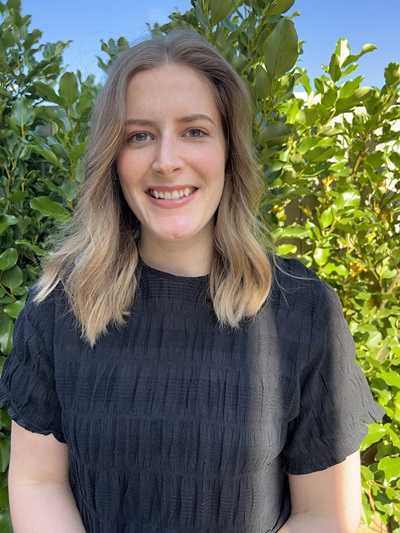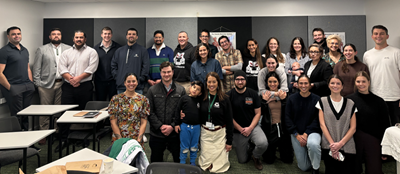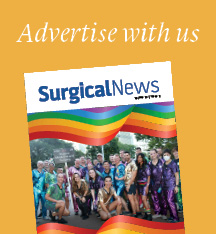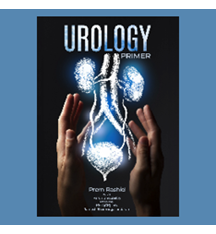2024 | Volume 25 | Issue 6

Nyasa Thompson
Te Rau Poka, the RACS Māori Surgical Academy, funded by the Foundation for Surgery, provides support to Māori medical students, registrars and consultants on a surgical pathway.
Earlier this year, the project leads commissioned a mixed methodolgy research on systemic barriers and supports for Māori at various stages of this pathway, including medical tauira, house officers, registrars (both training and non-training), and consultants. Ethics was approved by the Health and Disability Ethics Committee, with locality approval and Māori consultation obtained.
A survey was developed, and interviews were conducted using a kaupapa Māori methodology to understand existing support mechanisms for Māori doctors. This approach also explored systemic barriers and opportunities to enhance support, aiming to ensure equitable pathways into surgery for Māori in Aotearoa New Zealand.
Dr Nasya Thompson, a PGY1 house surgeon based in Christchurch is leading the research under the supervision of Professor Jonathan Koea who is also one of her PhD supervisors. This project is also supported by the guidance of Dr. Ruth Herd, Kaiwhakarite Hauora Māori – Māori Health Equity Lead. Nasya presented the research design at the Annual Scientific Congress in Christchurch and interim findings at the Te Rau Poka hui in Wellington. Analysis has started on the data gathered from 21 participants. The analysis has identified five key themes :
• Motivations and inspirational experiences in surgery
• Mentorship and support systems
• Systemic barriers and experiences of racism
• Balancing cultural identity with surgical training
• Suggestions for improved pathways and support.
Theme 1:Motivations and inspirational experiences in surgery
Māori participants across all stages were inspired to pursue surgery through a mix of early experiences, the influence of mentors, and personal motivations related to patient impact and health equity.
A participant said, “There is something powerful about seeing a patient improve because of your work … it makes all of the challenges worthwhile.
“It was also often noted the clear disparities that Māori patients suffer when it comes to access, treatment and outcomes. Entering these surgical specialties allowed us to have a meaningful impact on these outcomes for Māori and provide positive impact on Māori communities.”
Theme 2: Mentorship and support systems
Mentorship is crucial at every stage; yet many participants reported a lack of accessible Māori mentors, especially those who could understand both surgical and cultural pressures.
“Most of the support I received was through whānau and friends. While this is very important, they do not have an in-depth knowledge of what we go through in surgical training. Due to the low numbers of Māori Trainees and surgeons it can be hard to find people that relate”, a participant said.
For consultants, the representation was even more limited when they first entered the field. However, they highlighted the critical role that Māori have held in council positions, education boards, and various structures within RACS. These roles are essential for increasing Māori representation and fostering support—underscoring the need to expand our presence in these influential spaces
“I was fortunate to work under a Māori SMO in my final two years of training. The difference this made was huge. She would regularly drop in to my clinic room to touch base,” a participant said.
Theme 3: Systemic barriers and experiences of racism
Systemic racism and bias were frequently mentioned barriers, with participants at all levels describing encounters with discrimination that impacted their training and career trajectory.
An anonymous participant said, “We are working in a system that is not trying to help address the health inequities for Māori. I am working with people that don’t want to try address these either. It is a driver for me though because I want to try address these in my career.”
Senior consultants shared that systemic racism has been a long-standing issue. It was commonly noted that Māori were not often being offered jobs on the outside of training . One participant said, “It was very clear Māori weren’t a priority.”
Theme 4: Balancing cultural identity with surgical training
Balancing cultural identity with the demands and expectations of surgical training emerged as a major theme. Participants described the challenge of maintaining their Māori identity while integrating into a predominantly mono-cultural surgical environment.
Some students shared concerns about navigating a culturally foreign environment in medical training. One student said, “It’s hard to balance cultural values when the environment is so westernised.”
Registrars echoed these sentiments, often feeling that they had to compromise their cultural identity to fit into the surgical culture. One registrar described experiencing “imposter syndrome,” which they noted as “a big one, and I’m not sure if it’ll ever go away entirely.”
Many consultants shared that this challenge was one they had experienced throughout their training and even into their careers. One consultant reflected, “You lose a lot of your sense of personal identity becoming a surgeon because you’re so focused on fitting into a specific mould.”
Theme 5: Suggestions for improved pathways and support
Participants across all stages recommended specific actions to support Māori in surgery, such as better funding for training, stronger mentorship networks, and a “pipeline” approach that would support Māori from medical school through to consultancy. Students emphasised the need for more practical support, such as funding and networking opportunities. One student said,
“Funding to attend conferences or courses would be a game-changer for someone like me. Creating more spaces where tauira can meet tākuta within the spaces they are interested in and start these connections early.”
Registrars called for structured mentorship programs with regular check-ins to prevent feelings of isolation and help them progress through training. One registrar suggested, “Te Rau Poka should make a clear pathway for Māori surgical Trainees, with Māori mentors available.” This highlights the need for both professional guidance and cultural support as Trainees advance in their careers. (A hui was held in early August in Wellington).
The following quotes attest to the need for more Māori surgical Trainees and Māori surgeons not only to provide better care for our patients but to provide a better network for each other.
“Only other Māori Trainees and surgeons know the demands we face”.
Consultants suggested a more comprehensive approach to supporting Māori in surgery, starting from early exposure in schools through medical school, training, and eventual consultancy.
One consultant described the goal of establishing a strong pipeline, saying: “We need to keep people plugged in, so we don’t lose them along the way.”
Another consultant emphasised the need for job security after training, especially in locations significant to Māori doctors, saying: “If we could generate a roster of who wants to go where … it would be a beautiful way to ensure Māori doctors can work close to their tūrangawaewae.”
Conclusion
This is just a sneak preview of the findings to date. Nasya is currently working on a report to present to the Māori Health Advisory Group in November and preparing a manuscript to forward for publication later this year. Jonathan and the team will use the findings to fine tune our program of support including ongoing sponsorship for Te Oranga, Te Poka Pū, a Māori Surgical Interest Group and Wānanga Whakarite – SET selection preparation course.
We will continue to reach out to high school students through the Pūhoro programme and represent RACS at the Te ORA hui a tau and other relevant forums. The feedback to date has been very informative and gives us a clearer picture of what is happening for these tākuta on the surgical pathway.

Wananga Whakarite, May 2024, Wellington
There is still time to participate. Go to the survey link below or contact Nasya directly if you are a Māori student, registrar or consultant who is interested in or on the surgical pathway.
Medical students/ House Officers – https://docs.google.com/forms/d/e/1FAIpQLSdwB2nS-hDCTwvInTwOi8SJtbUjahKWU-Vhe7gCGScjXmpHuA/viewform?usp=sf_link
Registrars (non-Trainee and Trainee) – https://docs.google.com/forms/d/e/1FAIpQLSdF1VACGO_uqVp7zM5B83vso5LSn2Kpwk8hquvHB2p2ExtKWw/viewform?usp=sf_link
Glossary of Māori terms
Hui a gathering or meeting
Hui a Tau Annual general meeting
Tākuta Doctor/s
Tauira Student/s
Te ORA Te Ohu Rata o Aotearoa (Māori Medical Practitioners Assoc)
Te Oranga Māori Medical Students Association
Te Poka Pū Māori Surgical Interest Group
Tūrangawaewae A home base or standing place.

